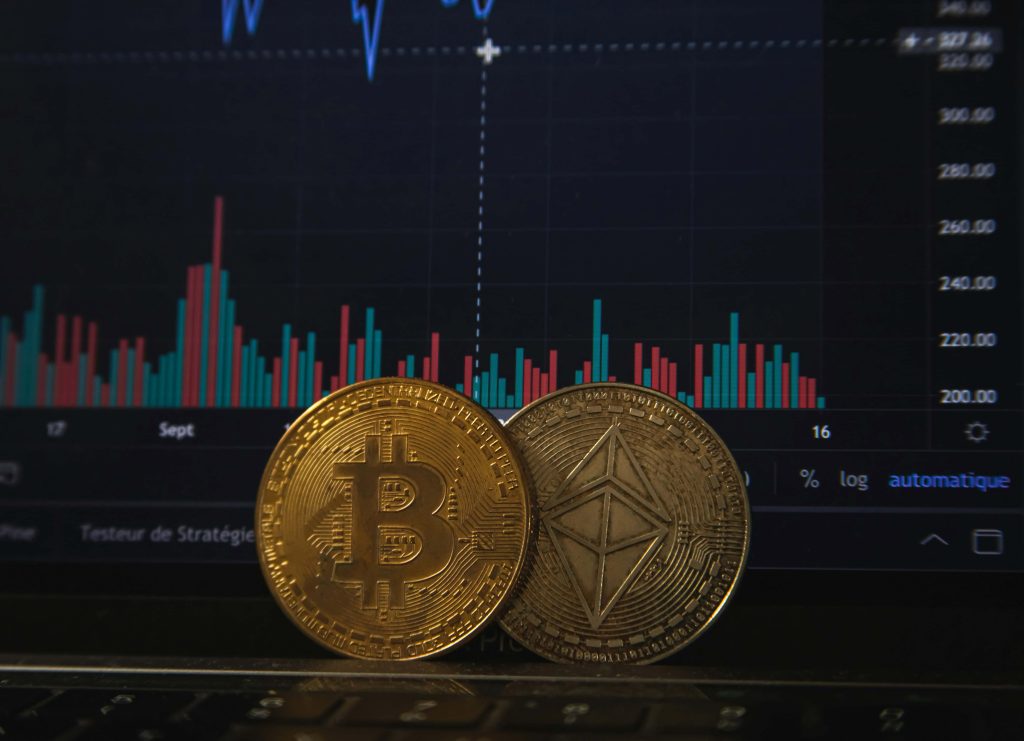
08 Jun Decentralized Exchanges (DEXs): Revolutionizing Cryptocurrency Trading
Introduction
In the fast-paced world of cryptocurrencies, decentralized exchanges (DEXs) have emerged as a revolutionary alternative to traditional centralized exchanges (CEXs). This article delves into the essence of DEXs, their operational dynamics, and the advantages they offer over their centralized counterparts.
Decentralized exchanges, commonly referred to as DEXs, represent a paradigm shift in the cryptocurrency landscape. Unlike centralized exchanges, which rely on intermediaries to facilitate trades and store users’ funds, DEXs operate in a peer-to-peer fashion. This fundamental distinction empowers users with greater control over their assets while eliminating single points of failure and susceptibility to hacks.
DEXs leverage blockchain technology to enable users to trade directly with one another, bypassing the need for a central authority to facilitate transactions. This peer-to-peer model not only enhances security but also promotes transparency and decentralization within the cryptocurrency ecosystem.
How Decentralized Exchanges Work
Core Concept: Peer-to-Peer Trading
At the heart of DEXs lies the concept of peer-to-peer trading. By leveraging blockchain technology, DEXs enable users to trade directly with one another without the need for intermediaries. This approach not only enhances security by eliminating the risk of funds being held by a third party but also ensures greater transparency throughout the trading process.
In a peer-to-peer trading model, users retain control over their funds throughout the entire transaction process. Unlike centralized exchanges, which require users to deposit funds into a centralized wallet controlled by the exchange, DEXs allow users to maintain control of their assets in their own wallets, known as non-custodial wallets. This means that users are not required to trust a central authority with their funds, reducing the risk of theft or loss due to exchange hacks or malfeasance.
The Role of Smart Contracts
Smart contracts play a pivotal role in facilitating trades on DEXs. These self-executing contracts are programmed to automatically execute trades when predefined conditions are met, thereby streamlining the trading process and minimizing the need for manual intervention. Additionally, smart contracts enhance trust by ensuring that transactions are executed exactly as agreed upon, without the possibility of manipulation or interference.
Smart contracts are deployed on the blockchain, where they can be accessed and executed by anyone with an internet connection. This decentralized nature ensures that trades are conducted in a trustless manner, without the need for users to rely on a central authority to facilitate transactions.
Liquidity Pools
Liquidity pools are a vital component of many DEXs, providing the necessary liquidity to facilitate trades. In a liquidity pool-based model, users contribute funds to a shared pool, which is then used to facilitate trades on the platform. This approach helps mitigate liquidity concerns, ensuring that users can execute trades efficiently even in markets with lower trading volumes.
Liquidity pools operate on the principle of automated market making, where users contribute funds to a pool in exchange for a share of the trading fees generated by the platform. These funds are used to facilitate trades on the platform, with the prices of assets determined by the ratio of assets in the pool. This decentralized liquidity provision model ensures that users can trade assets seamlessly without the need for a central authority to match buy and sell orders.
Benefits of Using DEXs
Security and Control
One of the primary advantages of DEXs is the enhanced security and control they offer to users. By eliminating the need for third-party custody of funds, DEXs ensure that users retain full ownership and control over their assets at all times. Additionally, users maintain control of their private keys, further enhancing security and reducing the risk of unauthorized access or theft.
The non-custodial nature of DEXs means that users are not required to trust a central authority with their funds, reducing the risk of theft or loss due to exchange hacks or malfeasance. Additionally, the use of smart contracts ensures that trades are executed exactly as agreed upon, without the possibility of manipulation or interference by a central authority.
Transparency and Trustlessness
DEXs operate on a foundation of transparency and trustlessness, with all transactions recorded on the blockchain for anyone to verify. This immutable record ensures that trades are conducted fairly and transparently, without the need for users to place trust in a central authority. Furthermore, DEXs are permissionless, meaning that anyone can access and participate in trading activities without restrictions.
The transparent and trustless nature of DEXs ensures that users can verify the integrity of transactions and trading activities on the platform. By leveraging blockchain technology, DEXs provide users with a high level of transparency and accountability, reducing the risk of fraud or manipulation by centralized entities.
Potential Drawbacks of DEXs
Limited User Interface and Functionality
While DEXs offer numerous benefits, they may present challenges for users accustomed to the user-friendly interfaces of centralized exchanges. Navigating the complexities of DEXs, such as managing wallets and interacting with smart contracts, can be daunting for newcomers to the cryptocurrency space. Additionally, the user experience on DEXs may not be as polished or intuitive as that of centralized exchanges.
The decentralized nature of DEXs means that users are required to manage their own wallets and interact directly with smart contracts to execute trades. This can be intimidating for users who are not familiar with blockchain technology or who prefer the convenience of a centralized exchange. Additionally, the user interface and functionality of DEXs may not be as robust or user-friendly as those of centralized exchanges, making it challenging for users to navigate the platform and execute trades efficiently.
Lower Liquidity Compared to CEXs
Another potential drawback of DEXs is their lower liquidity compared to centralized exchanges. Due to the decentralized nature of DEXs, liquidity is distributed across various liquidity pools, which can result in thinner order books and higher slippage during trade execution. While efforts are underway to improve liquidity on DEXs, this remains a significant consideration for traders seeking optimal trade execution and pricing.
The decentralized nature of DEXs means that liquidity is distributed across various liquidity pools rather than being concentrated in a single order book. This can result in thinner order books and higher slippage during trade execution, particularly in markets with lower trading volumes. While liquidity providers play a crucial role in mitigating these issues, lower liquidity remains a challenge for DEXs compared to centralized exchanges.
Conclusion
In conclusion, decentralized exchanges represent a significant evolution in the realm of cryptocurrency trading, offering enhanced security, transparency, and control to users. While DEXs may present certain challenges, such as a limited user interface and lower liquidity, their fundamental advantages make them a compelling choice for traders seeking autonomy and security in their trading activities. As the cryptocurrency landscape continues to evolve, DEXs are poised to play a pivotal role in shaping the future of finance, driving innovation, and empowering users worldwide.
Key Takeaways
- Decentralized Nature: DEXs operate on a peer-to-peer model, leveraging blockchain technology to enable direct trading between users, enhancing security and transparency while eliminating the need for intermediaries.
- Security and Control: DEXs offer enhanced security by allowing users to retain control of their assets in non-custodial wallets, reducing the risk of theft or loss due to exchange hacks or malfeasance.
- Transparency and Trustlessness: Transactions on DEXs are recorded on the blockchain, providing a transparent and trustless environment where trades are conducted fairly without the need to trust a central authority.
- Challenges: While DEXs offer numerous benefits, they may present challenges such as a less user-friendly interface and lower liquidity compared to centralized exchanges, which could affect trade execution efficiency.
- Future Potential: Despite challenges, DEXs are poised to play a significant role in the future of finance, driving innovation and empowering users worldwide with autonomy and security in their trading activities.
Frequently Asked Questions
What sets Decentralized Exchanges (DEXs) apart from Traditional Centralized Exchanges (CEXs)?
DEXs enable direct peer-to-peer trading through blockchain technology, eliminating the need for intermediaries and centralized control. This ensures greater security, transparency, and control over assets compared to CEXs.
How do Smart Contracts contribute to Decentralized Exchanges (DEXs)?
Smart contracts automate trade execution based on predefined conditions, ensuring transactions are transparent and trustless. They operate on the blockchain, enabling trade without relying on a central authority.
What are the key benefits and drawbacks of using Decentralized Exchanges (DEXs)?
DEXs offer enhanced security, transparency, and control over assets. However, they may have a less intuitive interface and lower liquidity compared to CEXs, posing challenges for some users. Despite this, the autonomy and security they provide make DEXs an attractive option for many traders.
Explore the fascinating interplay between supply, demand, utility, and incentives in the realm of token economics and unlock new insights into the future of finance.




